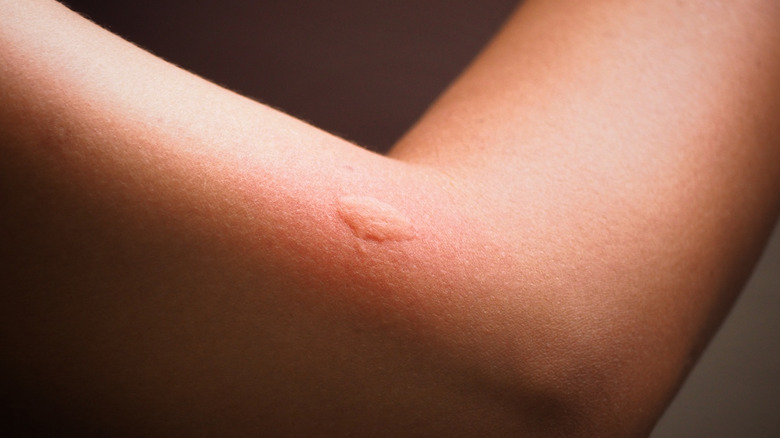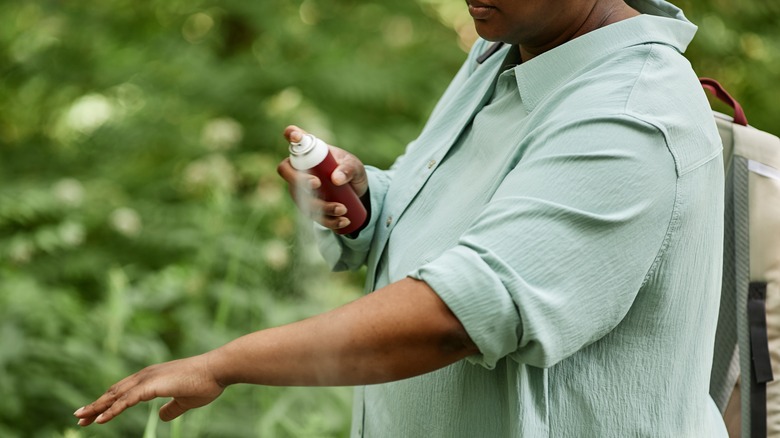This Is When To Get Worried About A Mosquito Bite
There's nothing better than sitting outside at a summertime barbecue surrounded by good friends and good food. As evening falls, however, some new friends may arrive on the scene in the form of pesky mosquitoes. While we all suffer bug bites every now and again, mosquito bites can carry some unique risks. Knowing this, at what point should we be concerned about a mosquito bite?
According to the U.S. Centers for Disease Control and Prevention (CDC), more than 200 species of mosquitoes can be found across the country. However, not all of them put us at risk for disease. Rather, only about 12 of these species carry illness-causing germs. West Nile virus, Zika virus, and malaria are among the different types of diseases that can be spread by mosquitoes. In severe cases, these infections can lead to brain inflammation, meningitis, abnormal brain development in babies, or death, reports the United States Environmental Protection Agency (EPA).
While most of us are familiar with the redness and itching that accompanies a mild mosquito bite, what symptoms should we be on the lookout for indicating a mosquito bite may be something more?
Symptoms of mosquito-borne diseases
A mild mosquito bite often produces symptoms such as swelling, redness, and itching. In some cases, individuals bitten by a mosquito may also experience blisters or hives, reports WebMD. The CDC adds that some people may also notice darker marks on their skin resembling bruises. Mosquito bites generally take care of themselves, but if you experience these symptoms along with signs of illness, it may indicate something more.
Symptoms will present differently depending on the disease. For example, some people with West Nile virus may experience symptoms similar to those of the flu, while others may be asymptomatic. Those infected with the Zika virus may develop a rash, conjunctivitis, fever, or joint or muscle pain. However, these symptoms are generally not severe and usually subside within seven days' time. Alternatively, those with malaria may experience shaking, chills, headache, tiredness, nausea, vomiting, diarrhea, jaundice, or anemia, reports the CDC.
These symptoms may emerge anywhere from ten days to one year after being bitten. However, it's important to note that no cases of malaria have been detected in the U.S. within about the last 70 years.
The importance of prevention
Awareness and prevention are among the best ways to protect oneself from mosquito bites and related diseases. Mosquitos are out and about during the spring and summer months in the United States (via WebMD). Therefore, during this time of year, it's important to use mosquito repellent and wear long clothing that's light in color. You'll also want to make sure your yard isn't creating a cozy environment for mosquitos to thrive in. This means dumping out any standing water, such as in wheelbarrows or empty plant pots that could fill with rainwater.
To protect yourself from mosquito-borne disease, do some research before traveling internationally to be aware of any potential health risks specific to the area. If you are going to a region where cases of malaria have been detected, consult with your doctor well in advance about preventative medicine options, the CDC advises. After traveling, if you experience a headache, fever, muscle or joint pain, or a rash, promptly see a doctor and be prepared to discuss any recent travels.



